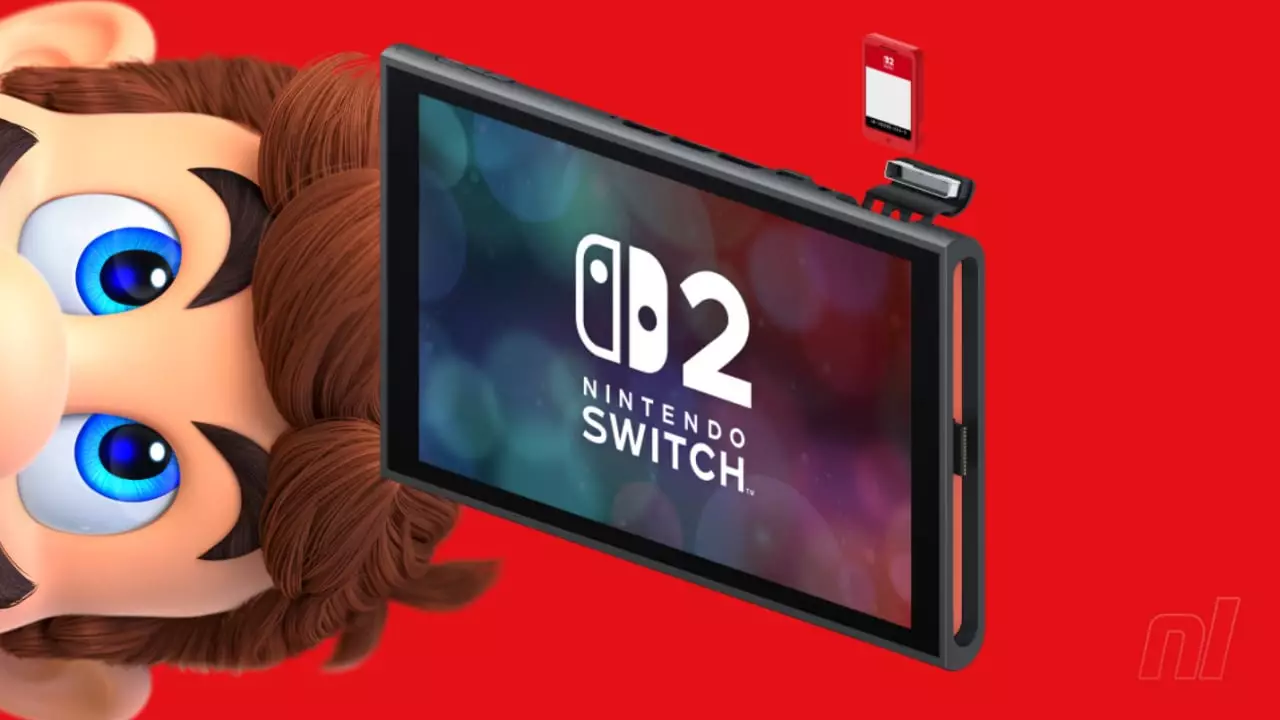In the constantly evolving world of gaming, where innovations and consumer expectations often clash, Nintendo’s recent announcement regarding Game-Key Cards for its upcoming Switch 2 has ignited considerable conversation. While it might seem like an intriguing twist into the realm of physical game distribution, a closer scrutiny reveals a more disconcerting reality that has many traditional gamers feeling frustrated.
At first glance, Game-Key Cards appear to be nothing more than digital codes packaged in a physical frame—essentially taking a step back rather than forward. Instead of providing the tactile joy of physically owning a game, players will now receive a cartridge that acts as a mere “key” for downloading the actual game. While it is common in the industry to see games released that require hefty Day One patches, the shift here feels more gratuitous, flipping the concept of physical games on its head.
Challenging the Value of Physical Ownership
The concept of physical ownership has always been a cornerstone of gaming culture. Collectors relish having complete boxes, artwork, and cartridges creating a sense of having a tangible connection to their favorite titles. Nintendo’s Game-Key Cards challenge this notion by introducing a product that mimics a digital experience, disenfranchising those who cherish traditional game ownership. Beyond the disappointment lies an unsettling realization: for many, the thrill of unboxing a new game will now be no different than entering a code on an online storefront.
As detailed in Nintendo’s own FAQ, these Game-Key Cards will require players to download the game data onto their systems, creating dependency on internet connectivity that does not align with the core reason many gamers prefer physical copies in the first place. If players are stuck in a location without reliable internet, those cards become almost useless, contradicting the very essence of what makes physical gaming appealing—freedom from often cumbersome online restrictions.
The Profound Implications for Third-Party Developers
More troubling is the broader impact of Game-Key Cards on the third-party developers’ landscape. This strategy might provide publishers a financial loophole, allowing them to avoid the expense of producing full-sized cartridges while still placing a physical product on retail shelves. It could dilute the quality of physical gaming as developers adopt this cost-effective model, potentially leading to a market saturated with half-hearted physical offerings, stripped of the full game experience.
Nintendo seems to be skirting important questions surrounding the quality of experiences they offer, with these cards becoming a bandwagon upon which third-party developers might hop rather than creating immersive, quality experiences. The transition to Game-Key Cards sidesteps an essential element of accountability in publishing; it essentially sidelines developers and positions them to skimp on effort and resources.
Searching for a Silver Lining
Is there a hidden benefit that has thus far escaped the general dialogue? For developers who might have struggled with the logistical hurdles of producing robust physical copies, Game-Key Cards may present a solution. However, it’s vital to remain hopeful amidst cynicism. The gaming community thrives when innovation balances with consumer needs, and having a voice to express discontent is an essential part of that equation.
As industry leaders and consumers engage in this conversation, one cannot help but ponder the future trajectory of game ownership. Will we see an uproar against this paradigm shift, forcing Nintendo to reconsider their new offering? Or is this merely the first step of a far-reaching trend that will redefine the essence of gaming itself?
Ultimately, the introduction of Nintendo’s Game-Key Cards presents an opportunity for both players and developers to engage critically with the concept of ownership and quality in gaming. Until more clarity is provided, one can only wonder: have we embraced a revolutionary change or merely stumbled into the realm of regret?


Leave a Reply